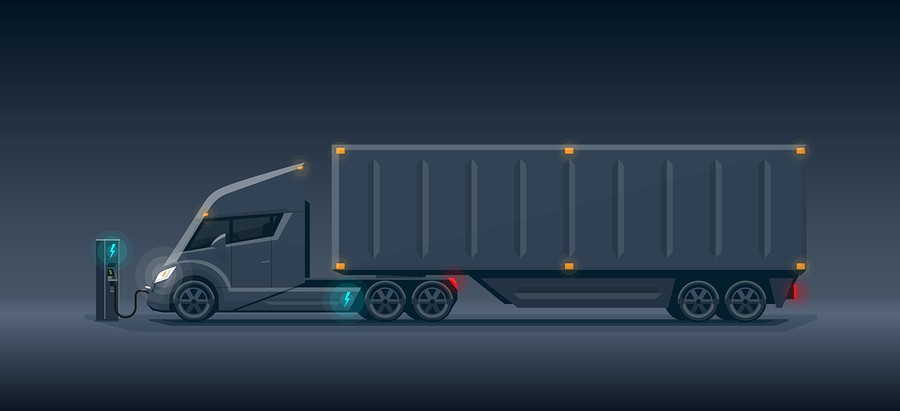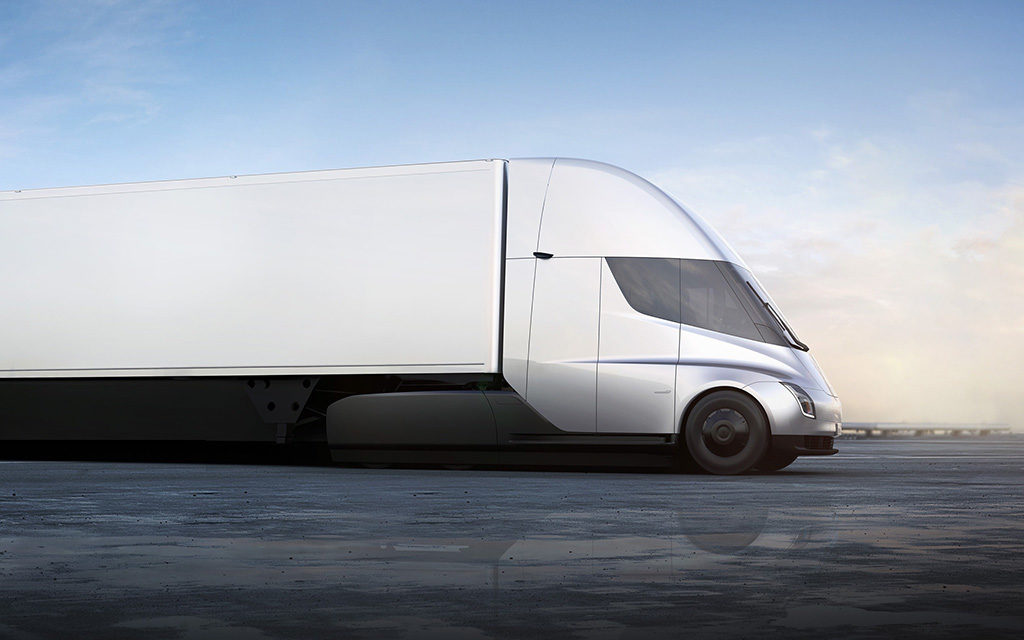New Technologies in Shipping Inspire Manufacturers

As electric car makers at Tesla release their electric-powered semitruck, many wonder whether other manufacturers will apply similar technology to vehicles and machines used in the manufacturing industry. But, although they’ve overcome some of the downsides of electric semitrucks, some industry insiders doubt the viability of such large electric-powered vehicles. Will the future be electric?
Industry insights
Experts from electric car companies have mixed feelings about the feasibility of electric-powered heavy-duty machinery.
- Director of Emerging Technologies for Volvo, Jenny Elfsberg, believes electric power offers the most efficiency, which is why — one day — all machines will run on electricity, although the full transition will take years.
- Director of Sales Product Management from Bosch Rexroth, Terry Hershberger, differs in his opinion. According to Hershberger, the move to electric power might not always be the most efficient. The possibility of converting heavy-duty machines to electric power depends on equipment size and how much power the machine requires to perform its job. Another issue is the available battery storage size and whether these machines would be small enough to maneuver around job sites.
- Eric Hendrickson, Parker Hannifin vehicle electrification business development manager, has a much more optimistic view. Like Elfsberg, he believes there will be a crucial shift to electronic equipment across many industries and that this transition will be “turbocharged” by increasing autonomy and artificial intelligence, as well as advances in battery, motor, and generator design.
This shift to electric power for transport not only brings into question electric-powered construction equipment but also the machines that build it. Clearly, it will take time to convert all equipment to electric power. In the meantime, manufacturers can experience the benefits of developing and using hybrids as more viable options become available. A focus on downsizing engines and developing technologies like electrohydraulics as well as more efficient battery storage can lower fuel consumption and operating costs.
Manufacturing supply chain enhancements
Manufacturers will likely see more immediate benefits when it comes to shipping, as electric transport vehicles may lower freight costs. In fact, Tesla manufacturers boast a 20% decrease in operating costs for their new semi compared to the typical diesel semi. Also, accident and property damage risks are lower with new Tesla Semi technologies. This semi will have the ability to group with other Tesla semis, which has proven to be a safer way to transport products across the country.

So, what does the new Tesla Semi actually offer? At maximum weight and speed, the Tesla Semi has a 500-mile range. The battery is designed for repeated charging and sits low under the truck to maintain a low center of gravity. Those at Tesla have also installed safety features such as automatic emergency breaking, automatic lane keeping, and collision warnings.
Sizing up the competition
Tesla isn’t the only company creating energy-efficient freight vehicles. Leaders at Daimler AG, a German-owned automaker, introduced their design for an electric-powered semitruck in October. They expect to have these trucks in production in the next few years, which may line up with Tesla’s expected 2019 production date. Those with BYD, a company some call “China’s Tesla,” seem to be ahead of the game, as they will be opening an electric truck plant in Canada in the near future. Although BYD headquarters is located in China, the company has a strong presence in California and elsewhere in the U.S. To save on shipping costs and avoid U.S. regulations hassles, they have chosen to construct their production plant in Canada. BYD may prove to be a major competitor with Tesla in the development of electric-powered vehicles.
Experts in electric-powered vehicles hope for an avenue to make heavy-duty machines more efficient for today’s manufacturers. Completely overhauling equipment to provide more efficient energy will take time, money, and innovation. However, manufacturers can benefit from utilizing various hybrids to carry plant operations in the meantime. The Tesla Semi has brought forth fresh inspiration to find new ways to power our equipment, but they are not the only company or industry developing new means of clean transport. Instead, business leaders across multiple industries could be making a shift toward more energy-efficient operations with electric power in the near future.